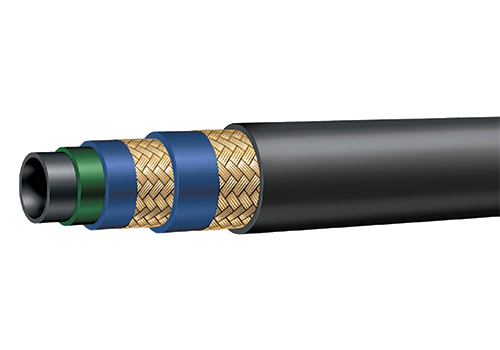Optimized AC Hose Design for Improved Performance and Reduced Resistance
அக் . 18, 2024 10:06 Back to list
Optimized AC Hose Design for Improved Performance and Reduced Resistance
Understanding Reduced Barrier AC Hoses
In modern automotive engineering, the importance of efficient air conditioning systems cannot be overstated. As vehicles become more advanced, the need for reliable components has grown correspondingly. One such component is the reduced barrier AC hose, a critical element in the air conditioning system that significantly impacts its performance. In this article, we will explore the features, benefits, and applications of reduced barrier AC hoses, and why they are becoming increasingly important in today's vehicles.
What are Reduced Barrier AC Hoses?
Reduced barrier AC hoses are specialized hoses designed for automotive air conditioning systems. Unlike traditional AC hoses, which can often have significant permeability to refrigerants, reduced barrier hoses are engineered to minimize this permeability. This is accomplished through advanced materials and multi-layer constructions that provide enhanced resistance to the diffusion of refrigerants, particularly the newer, environmentally friendly options such as R-1234yf.
The construction of these hoses typically involves internal layers that prevent the loss of refrigerants and outer layers that ensure durability and flexibility. The combination of these layers makes reduced barrier AC hoses highly effective in maintaining the system pressure, which is crucial for optimal AC performance.
The Importance of Reduced Barrier Hoses
1. Environmental Compliance With growing concerns over climate change and environmental protection, automotive manufacturers are under increased pressure to reduce refrigerant leakage. Reduced barrier AC hoses play a vital role in this effort by limiting the amount of refrigerant that escapes into the atmosphere, thus helping companies comply with environmental regulations.
reduced barrier ac hose

2. Improved Efficiency The efficiency of an air conditioning system is directly linked to the integrity of its components. Reduced barrier hoses help maintain system pressure, which can lead to improved cooling performance. This can enhance passenger comfort and reduce the workload on the vehicle's engine, ultimately leading to better fuel efficiency.
3. Durability and Longevity These hoses are designed to withstand harsh conditions encountered in automotive environments, such as exposure to UV light, ozone, and varying temperatures. The robust construction means that reduced barrier hoses typically have a longer lifespan compared to their traditional counterparts, leading to fewer replacements and decreased maintenance costs.
4. Versatility Reduced barrier AC hoses are suitable for a wide range of vehicles, from passenger cars to large commercial trucks. Their adaptability makes them a popular choice among manufacturers and mechanics alike.
Conclusion
As the automotive industry continues to evolve, the focus on sustainability and efficiency remains paramount. Reduced barrier AC hoses represent a significant advancement in air conditioning technology, combining enhanced performance with environmental responsibility. By minimizing refrigerant leakage, these hoses help keep air conditioning systems running efficiently while contributing to broader environmental goals.
For both manufacturers and consumers, investing in reduced barrier AC hoses is not just a matter of compliance; it's also about ensuring optimal performance and longevity of air conditioning systems. As vehicles transition to more advanced technologies and eco-friendly refrigerants, the role of reduced barrier AC hoses will undoubtedly become even more critical in the ongoing quest for more efficient and sustainable automotive solutions.
